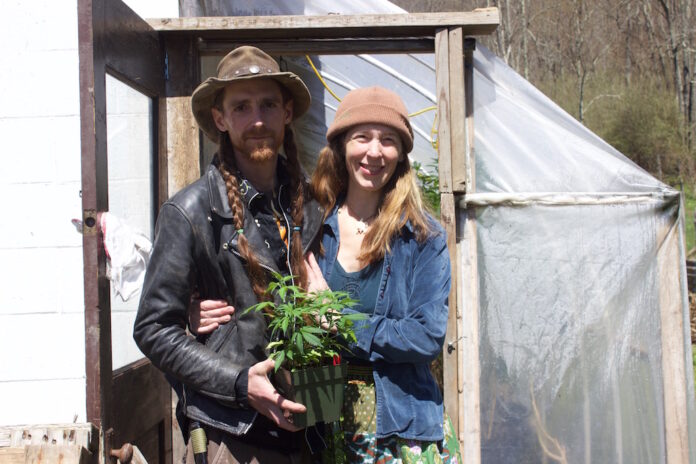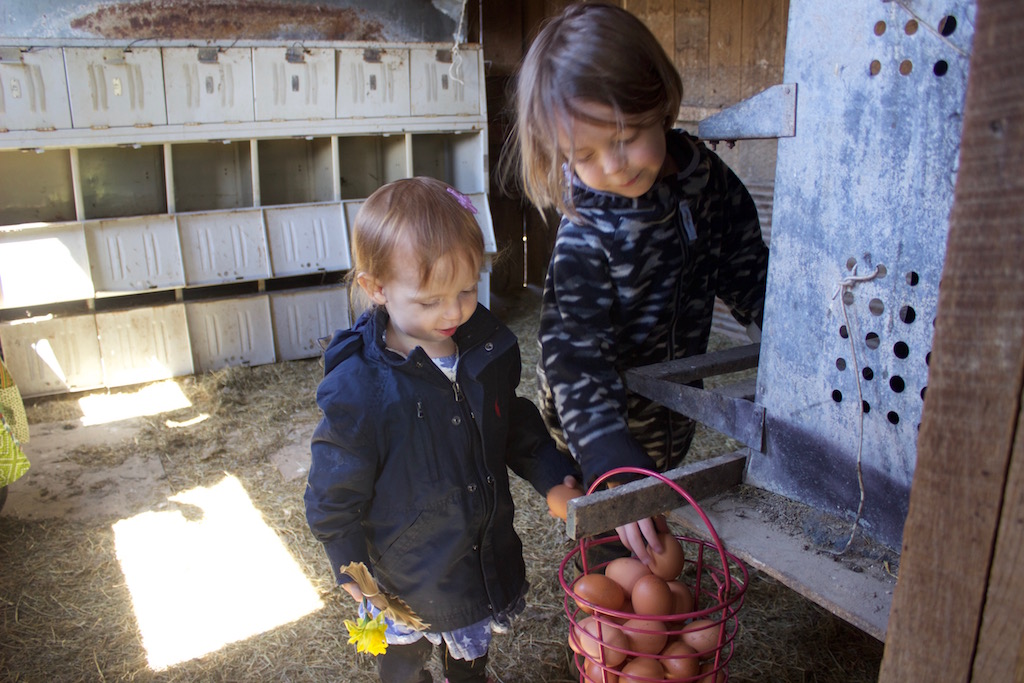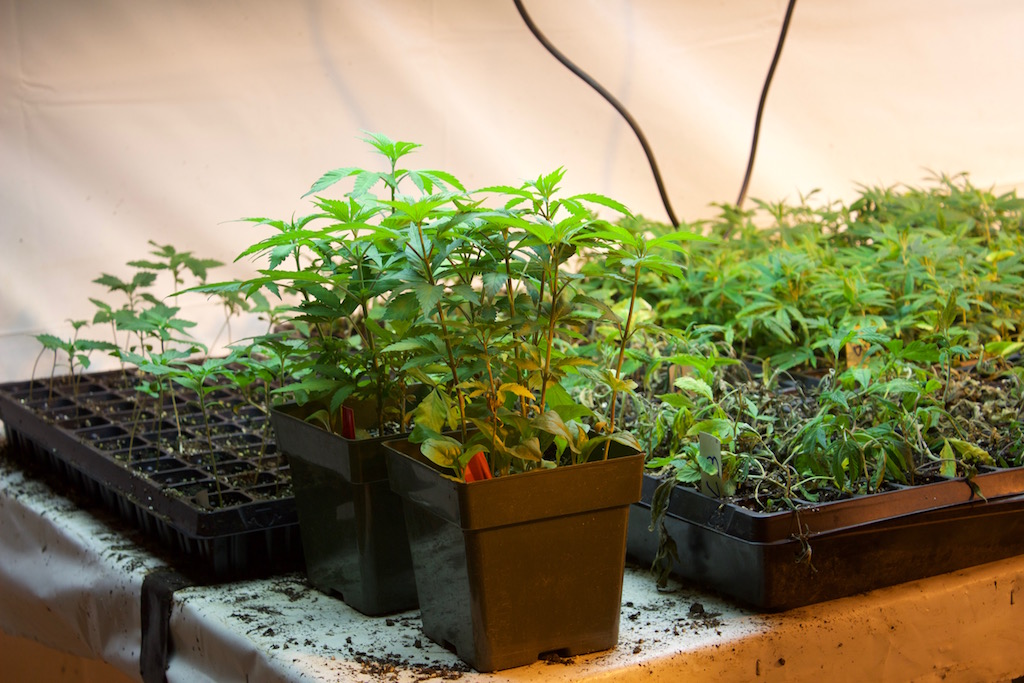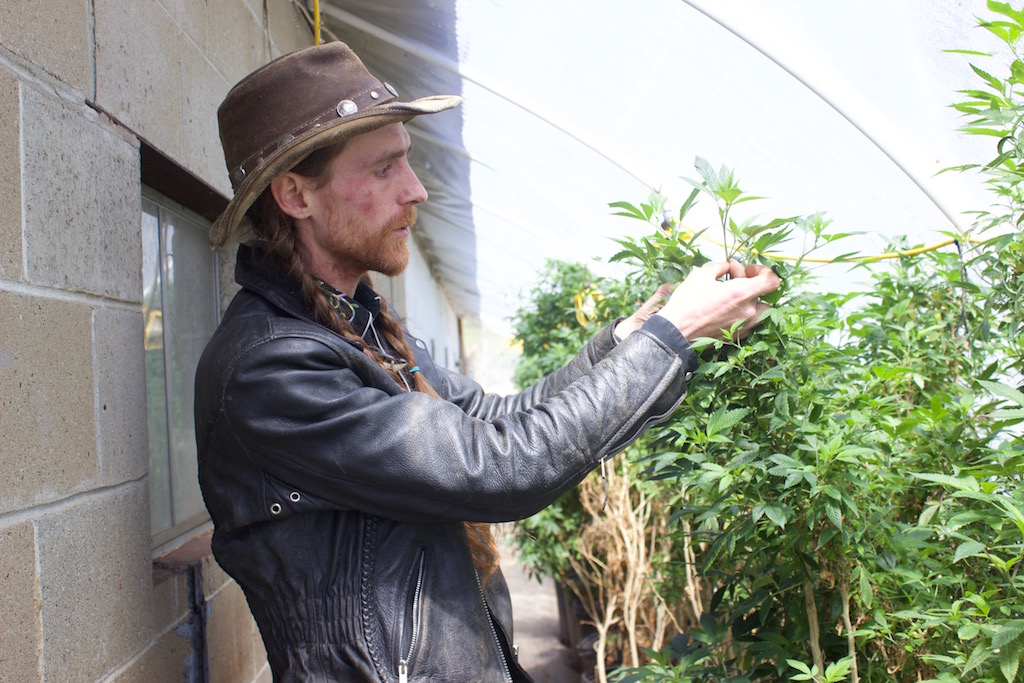
Next 7 Organic Farm, in Cadiz, Ohio, has been known by several different names over the years. It was the Johnson Homestead when Benjamin and Drusilla Perrin Johnson founded it in 1805. Since then, it has been passed down through seven generations — more recently, it was known as Her Bold Farm.
Now, Holly and Isaac Wiegmann are farming there under its current name. Holly is the seventh generation of her family on the 188-acre farm, and Isaac is in the seventh generation of farmers from his family’s land in West Virginia. They are working to keep the farm sustainable for the next seven generations after them.
“Any decision that you make, you should look at the effect of that decision for seven generations ahead in the future, to ensure that there’s a sustainable supply of what it is that you need and what it is that you’re taking,” Isaac said.
Family farms
Holly’s parents moved back to the farm in the 1970s, as newlyweds, and as back-to-landers. She was born on the farm and spent the first few years of her life there, then moved to California when her parents divorced. But she still visited the farm with her dad every year or so.
“It never really left us,” she explained.
In her 20s, she worked in a restaurant in Hawaii and learned more about food and local ingredients from that perspective. Later on, she owned a restaurant in New York, went to college and worked as a teacher. But in her early 30s, her teaching job dissolved. Around the same time, her dad finally moved back to the farm again.
“And I was like, you know what, this is my opportunity to move back to the farm — if anytime, this is it,” she said. “I didn’t know if it would be temporary or long term. But I just I fell in love with farming.”
About four years later, she met Isaac. Isaac is from West Virginia, and also is the seventh generation of farmers in his family. His dad, Mark Wiegmann, studied horticulture at West Virginia University and started his own greenhouse business on the family land.
“So, I was just around plants and horticulture all of my life and sponged it up,” Isaac said. After high school, he spent time walking the Appalachian Trail, then went to Hocking College to study natural resources. He liked the idea of being self-sufficient, and left college at 21 to move back to his parents’ place and work on growing vegetables, herbs, flowers and fruit trees.
He eventually moved to a rental farm in southern Ohio. A friend who interned on Holly’s farm introduced the two of them. Holly and Isaac had a lot in common, including farming and a mutual interest in anthropology. They later got married and are now raising their two children, Abhiram, 5, and Joan, 2, on the farm.
Now, the farm includes certified organic vegetables and hemp, and pastured cattle, pigs and chickens, among other things. Some of their practices include rotational grazing and crop rotations. They also believe considering how Indigenous cultures used the land can help with making sustainable choices.

Markets
Up until 2020, Holly took much of what the farm sells to farmers markets in Pittsburgh. She found those were more lucrative than some of the closer markets, because there were more customers there who were health conscious and had money to support local farmers.
Then, Joan was born in March of 2020. Around the same time, the COVID-19 pandemic hit Ohio. It was a good time to reevaluate whether markets would be a good option for the coming season.
In Wheeling, West Virginia, Grow Ohio Valley, a nonprofit focused on building a local food system, opened its Public Market not long before that. The Wiegmanns connected with the nonprofit and started selling through the market and through Grow Ohio Valley’s CSA. They also sell to some local chefs. It’s all been enough to allow both of them to stay on the farm full time.

Hemp
The hemp is a recent addition. The Wiegmanns started growing hemp in 2020, the first year it was legal in Ohio. They got licenses in West Virginia and Pennsylvania, working with Isaac’s family in those states, as well as Ohio. Isaac was interested in the cannabis industry for a long time, and he spent time learning about the industry in other states over the years.
“I want to work with this plant. It’s such a great opportunity. But I don’t want to go live on some rocky hillsides in Colorado,” Isaac said. “By the time the hemp permits came on board in Ohio … I was ready to roll.”
They process the hemp at Isaac’s parents’ farm in Pennsylvania. The processing regulations in that state are easier for them to work with, and since they got the processing license there, they can process it there and then sell it in Ohio. That also helped them avoid the processing bottleneck that a lot of hemp growers struggled with in the first year.
“We’ve always tried to strive to eliminate the middleman,” Holly said. They both value having direct relationships with their customers, who are sometimes also their neighbors.
The first year, they grew about two acres of hemp in total. It was a busy year, and they relied on a lot of volunteer help to get the crop harvested. Isaac’s focus is on what he calls the “craft flower” side of hemp, which he compares to the craft brewery industry. Growing hemp in that way is very labor intensive.
They haven’t grown at that scale since then. That’s mainly because the cost of processing that much is prohibitive for now. But they are continuing to grow hemp clones to sell to other growers at their farm, and in West Virginia with Isaac’s father, Mark Wiegmann.
They bought an additional 10 acres of land about a mile down the road from the rest of the farm. That’s the main site for the hemp farm these days. On an April day, Isaac had the plants growing in a small greenhouse next to a barn, and inside the barn. He plans to add greenhouses behind the barn, as well.

Outreach
Some of the Wiegmanns’ goals for the farm are focused on outreach. They set up a couple of campsites on the farm, and were able make some extra money last year renting those out. They are working on getting a farmhouse on the other property ready as a vacation rental, as well. They are also planning to open up the farm more for tours.
“We have a beautiful place in the world,” Isaac said. “Just that exposure to nature, you know, is huge for me, and sharing that with people is definitely a passion of mine.”
That includes the hemp side of the farm. There’s still a stigma around anything in the cannabis industry, and that includes hemp, Isaac said. So, he wants to invite people out for hemp farm tours and tell them more about the history of the plant and how he grows hemp on the farm.
“I’m excited about being able to open it up, and normalize it,” Isaac said.










